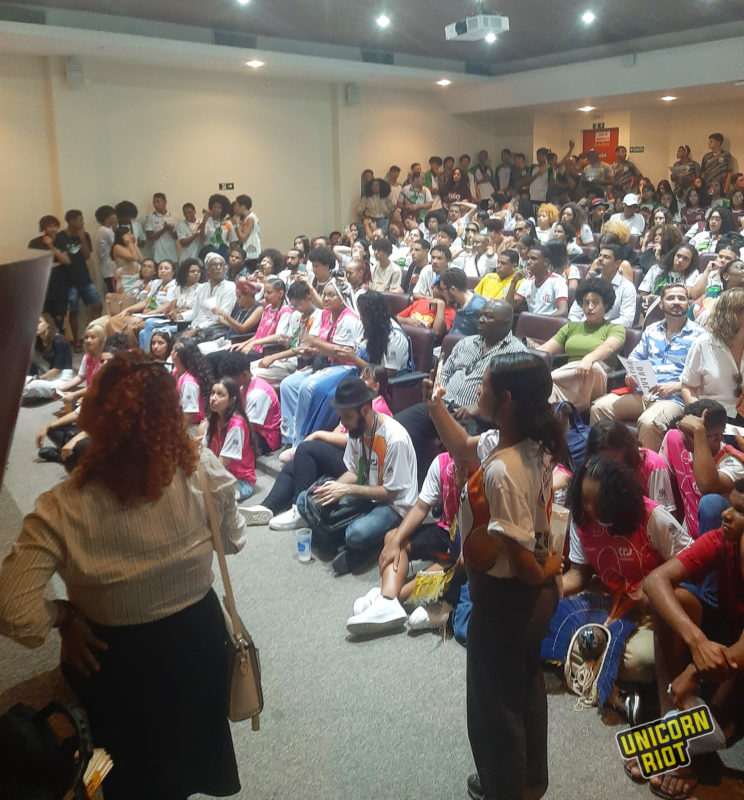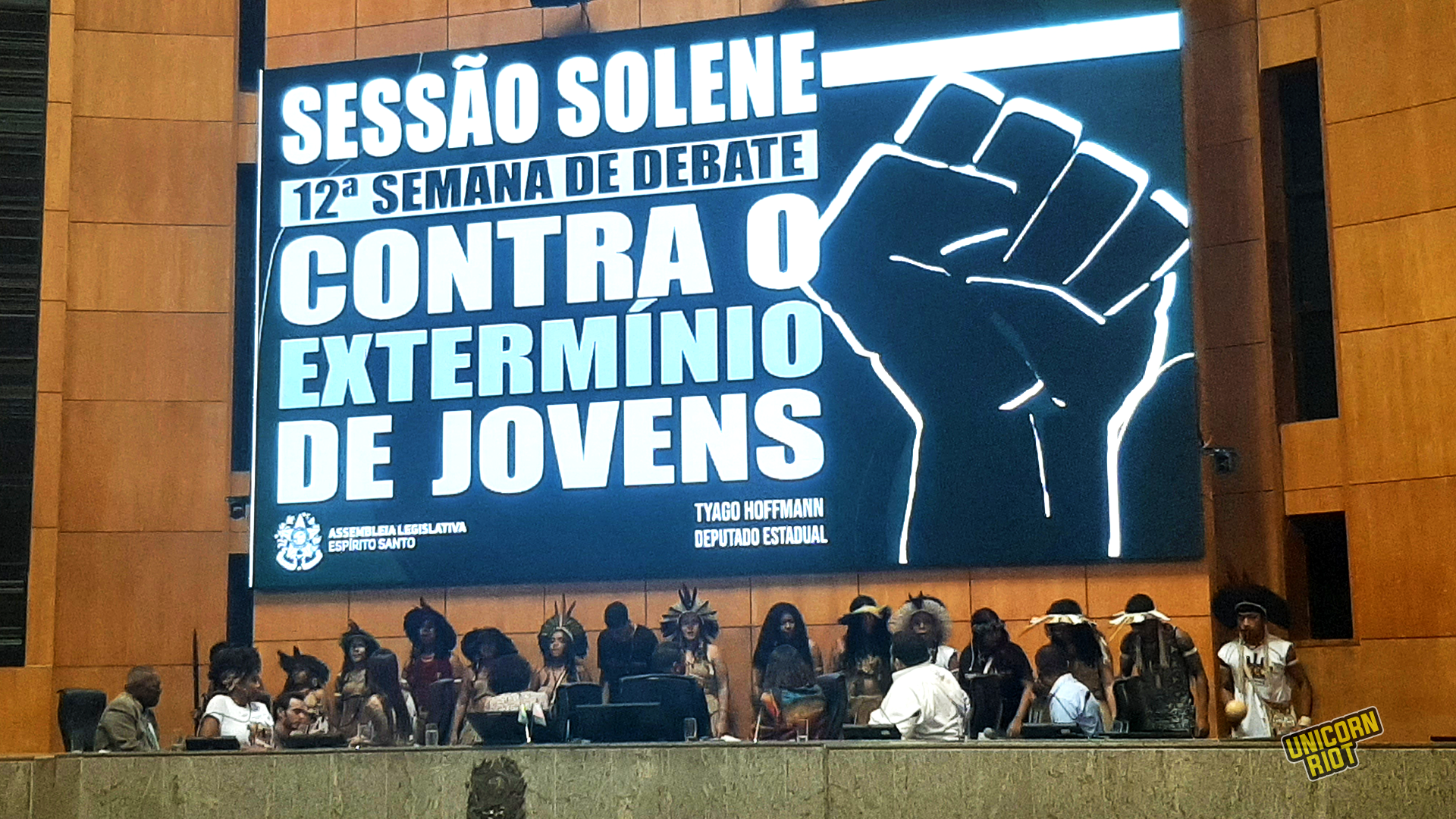Cultural Conferences Return to Brazil Without Fear of Repression
Cultural conferences have returned to Brazil without fear of repression and many organizers across the country are celebrating. The victory of current President Luis Inácio Lula da Silva over Jair Messias Bolsonaro in the last presidential elections marked the end of a turbulent period in which Brazil was led by an extreme right-wing government with racist, sexist, homophobic and denialist tendencies.
Conferences provide “an extremely important space” for “sharing and exchanging knowledge,” said Abellhão, who works with youth and is an educator, poet, and artist. With the return of conferences and debates, organizers say a healthier political population has already appeared. Organizers say these spaces play an important role in promoting democratic dialogue, expressing identities and defending human rights.
Among the many notable conferences recently held was the Viana Municipal Culture Conference in Viana, Espírito Santo. Themed “Democracy and the Right to Culture.” The conference was was held on August 5 and was attended by young people as well as local authorities from the city of 80,000 people.
Participants discussed public cultural policies implemented in the city and proposed strategies to strengthen and contribute to the preparation of the Municipal Culture Plan, which they collectively created:
- Institutionalization, Legal Frameworks and National Culture System
- Democratization of Access to Culture and Social Participation
- Identity, Heritage and Memory
- Cultural Diversity and Transversality of Gender, Race and Accessibility in Cultural Policy
- Creative Economy, Work, Income and Sustainability
- Right to Arts and Digital Languages
The Viana Culture Incentive Law, which has invested more than R$310 thousand reais to promote artistic and cultural production in the city, was celebrated. And three delegates were chosen, one from public authorities and two from civil society, to represent the municipality’s demands at the state conference.
“This is an extremely important space for construction, sharing and exchanging knowledge, where we go together with the kids, thinking about all the actions that young people take […] it is very important for us to talk about what needs to be done for us.”
Abellhão, Rap MC, Poet and Social Educator
Another conference of note in Espírito Santo was a youth conference in Serra named “Reconstructing the present, Building the future: Development, Rights, Participation and Good Living.” The conference was part of a nationwide day of conferences across many Brazilian cities on September 30.
Young people aged between 15 and 29 years old, and professionals who work on youth, met to discuss important topics for the country’s youth related mainly to public security and territoriality. At the state level, the debate went beyond youth policies and included such things as the need to maintain Youth Reference Centers (CRJs).

During the previous government these events faced significant challenges, including threats of violence, political rhetoric that often devalued and weakened Brazilian social movements and the restriction of spaces for discussions.
With the return of the left to power with Lula as president, organizers say it not only brings hope of more inclusive policies, but also the hope for a restoration of fundamental democratic values.
The participation and active voice of citizens, especially young people, are extremely important for the reconstruction of the country. This open and inclusive dialogue, say organizers, can serve as a device of affirmation and hope for a future where diversity is celebrated and human rights are respected.
Unicorn Riot's Coverage From Brazil:
- ‘Marielle, Presente’ – March Marks Feminist Struggles in Brazil - April 13, 2023
- Over 100 Families Occupy Abandoned Apartment Complex in Brazil - February 20, 2023
- Bolsonarist Extremists Attack Brazilian Government a Week After Lula Inauguration - January 12, 2023
- Elder Woman Released After 27 Years of Slave-like Servitude in Brazil - January 5, 2023
- With Lula Elected President of Brazil, the Left Consolidates itself as a Power in South America - November 9, 2022
- Elections in Brazil: Second Round Slated for October 30 Between Lula and Bolsonaro - October 7, 2022
- Ribeirão Favel’Arte, Festival of Arts and Culture in Brazilian Favelas - September 7, 2022
- Indigenous Official and British Journalist Murdered in Brazilian Amazon - July 7, 2022
- ‘Bolsonaro Never Again’ Protests Come Among New Wave in Government Scandals - May 19, 2022
- COVID Commission Finds Bolsonaro Committed “Crimes Against Humanity” - December 15, 2021
- Brazil: 600K Deaths, Emergency Aid Ends, Protests Continue, & People Call for Lula 2022 - October 9, 2021
- Brazil: Mutual Aid During COVID-19 and Bolsonaro’s Mismanagement - September 19, 2021
- Police in Brazil Killed Record Amount of People in 2020 - September 8, 2021
- Are the “Fora Bolsonaro” Protests Enough? - August 26, 2021
- Brazil: Hoping for a Vaccine, Food on the Plate and #ForaBolsonaro - July 9, 2021
- Brazil: The People, at Last, Took to the Streets - June 3, 2021
- The Invisible “THEY” - Apr. 29, 2021
- “Brazil is Asking for Help” – Artists and Activists Speak Out - Apr. 10, 2021
- Brazilian Pandemonium: COVID-19 Kills Over 300K - Mar. 27, 2021
- Brazil Nears 200K Deaths as Politicians Continue to Downplay COVID-19 - Dec 20, 2020
- Echoes of George Floyd in Brazil: Man Kneeled On, Killed by Security Guard - Nov 23, 2020
- The Coronavirus Crisis in Brazil – An Interview with EmiciThug - May 22, 2020
- “Enough of Being the Blood that Promotes Fascists”: Viewpoints From Brazil - May 15, 2019
Follow us on X (aka Twitter), Facebook, YouTube, Vimeo, Instagram, Mastodon, Threads, BlueSky and Patreon.
Please consider a tax-deductible donation to help sustain our horizontally-organized, non-profit media organization:



